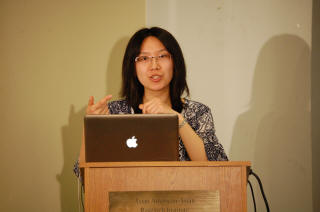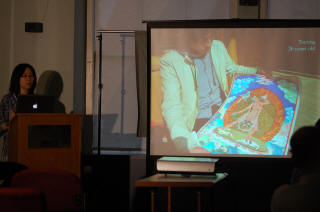
This talk is based on Dr. Ming Xue’s ethnographic research in Rebgong from 2009 to 2013. In Rebgong, Buddhist thangka painting is one of the major sources of income of local residents. Although thangka was traditionally a painting for religious teaching and practice, the aesthetic and economic value of thangka art has been increasingly recognized by art dealers, collectors and tourists from other parts of China and overseas. Since starting her fieldwork in 2009, the number of visitors in the area, the mobility of the painters, the material conditions, and the scale of the thangka market have been rapidly increasing.

The increasing cultural encounters between Tibetans and Han Chinese impose several interesting questions. For instance, how does Han culture specifically influence Tibetans? How do Tibetans view Han culture and reflect on their own culture? Do Tibetans also take advantage of sometimes competing, or conflicting cultures in an emerging free-market economy? In her talk, Dr. Xue will discuss three examples, including the changing status of Tibetan women as thangka artists, the acceptance of Han Chinese students, and the creation of contemporary thangka, to show certain critical and dynamic aspects of China-Tibetan relations that are usually overlooked by western point of view.

